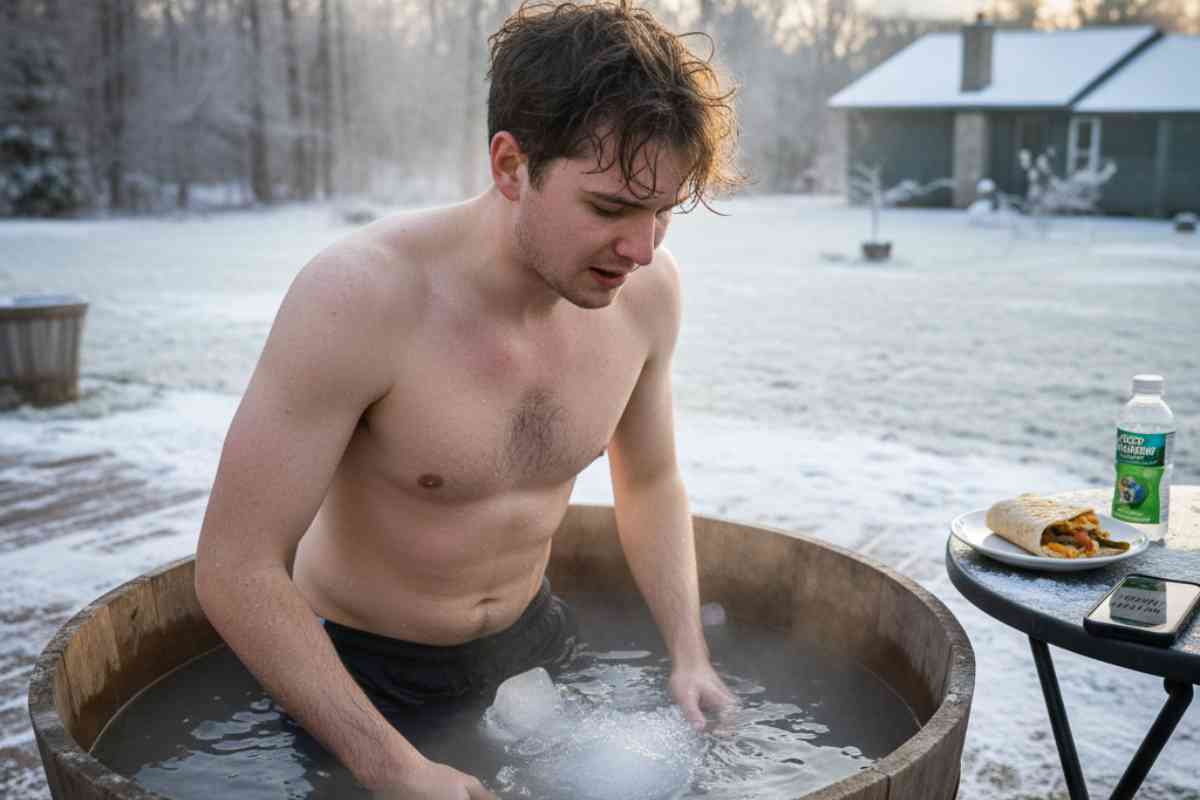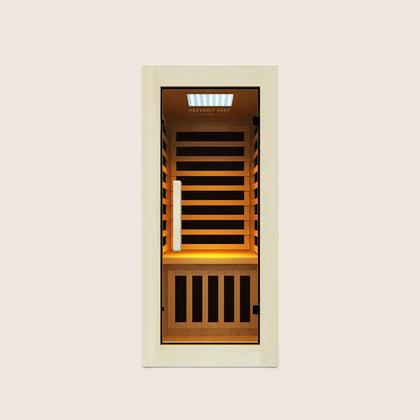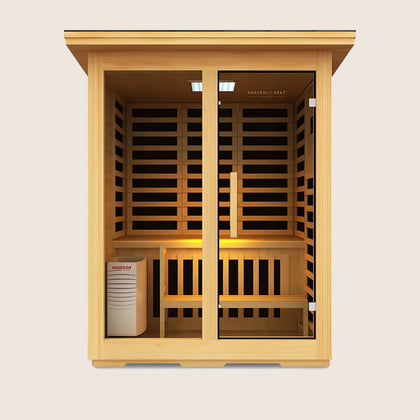Cold Plunge for Hangover: Does It Actually Work?

Head pounding, stomach churning, and eyes squinting at the faintest light, hangovers hit harder than just a headache.
Beyond fatigue, dizziness, and irritability, they wreck your focus, spike your heart rate, and leave you dehydrated.
Ignoring them means lost productivity and lingering misery. Could a cold plunge be the quick fix your foggy mornings need? Let’s find out.
Key Takeaways
Wake Up Fast: A cold plunge boosts circulation and clears hangover fatigue.
Relieve Discomfort: Cold water helps reduce headaches, inflammation, and brain fog.
Feel Better Mentally: Plunges improve mood, focus, and irritability after drinking.
Stay Safe: Keep plunges short, hydrate first, and avoid if you feel unwell.
Try Alternatives: Rehydrate, eat balanced foods, sip herbal teas, or rest with warmth.

What is Hangover?
A hangover is a group of unpleasant symptoms that appear after drinking alcohol, usually the next morning.
Common effects include headache, nausea, fatigue, and irritability. They are caused by alcohol’s dehydrating effects, toxic byproducts like acetaldehyde, and imbalances in electrolytes and neurotransmitters.
These factors disrupt sleep, mood, and body function, leading to the discomfort of a hangover.
Can a cold plunge help cure a hangover?
A cold plunge can help relieve some hangover symptoms but doesn’t “cure” it. Brief cold immersion boosts circulation, reduces headaches, eases inflammation, clears brain fog, lifts mood, and restores alertness.
It supports detox and mental clarity, but hydration, electrolyte-rich foods, gentle movement, warm baths, herbal teas, and rest remain essential for full recovery after alcohol.
Cold Plunge Benefits for Hangover Symptoms
Boosts Circulation to Wake You Up After Alcohol
A cold plunge after drinking improves circulation by tightening and opening blood vessels, which pushes more blood to your organs.
This increases heart rate and boosts blood flow, helping your body fight fatigue. Circulation improves within minutes, delivering oxygen and nutrients to your brain and muscles.
The result is clearer thinking, better focus, and faster recovery from hangover symptoms. By jump starting both your body and mind, cold plunges help you feel awake and alert quickly, making them an effective way to shake off hangover fatigue and restore mental clarity.

Reduces Headaches and Soothes Inflammation
Taking a cold plunge can actually calm headaches and reduce inflammation by tightening blood vessels and slowing nerve signals, which eases pain and swelling.
According to Hindawi, cold therapy works—Lance found most migraine and tension headache patients felt less pain, and Diamond and Freitag showed cold packs helped 71% of headache sufferers.
So, a quick cold plunge might be a simple, refreshing way to fight hangover headaches.
Restores Energy and Fights Hangover Fatigue
A cold plunge can quickly restore energy after a night of drinking. The sudden cold boosts circulation and triggers alertness, helping fight post-drinking lethargy.
It reduces hangover fatigue by stimulating the nervous system and lifting your mood, giving you a mental edge.
Within minutes, cold immersion can improve focus and increase motivation, helping you feel more awake and ready to tackle the day.
By targeting both body and mind, a cold plunge doesn’t just refresh—it actively restores energy and sharpens alertness, making it a powerful tool for beating hangover fatigue.
Supports Faster Detoxification of Alcohol
Cold plunges might offer more than just a brisk wake-up—they could help ease hangover symptoms by supporting your body’s natural detoxification.
Studies highlighted in the International Journal of Molecular Sciences suggest that cold exposure can influence liver metabolism, which plays a key role in how your body processes alcohol and manages energy.
Research in animal models shows that brief cold exposure can increase glycogen storage in the liver and enhance fat breakdown, both crucial for restoring energy and clearing toxins.
The benefits extend beyond the liver. Immersing in cold water triggers blood vessels to constrict and then reopen, improving circulation.
This enhanced blood flow helps flush out toxins while reducing inflammation. Additionally, the sudden cold stimulates the immune system and the vagus nerve, supporting overall recovery.
Together, these effects may help reduce hangover-related fatigue, brain fog, and sluggishness, offering a natural and refreshing way to bounce back after a night of drinking.
Clears Brain Fog for Better Focus
Taking a cold plunge can help clear the haze of a hangover and sharpen your focus. Research in the International Journal of Environmental Research and Public Health suggests that cold exposure influences cognitive functions like attention, memory, and processing speed, though results vary with the type and duration of immersion.
Short bursts of cold-water immersion, in particular, appear to have a noticeable effect. Studies reported in Biology (Basel) indicate that cold water triggers neurotransmitters such as norepinephrine, enhancing alertness and mental clarity.
Participants often feel more energized, attentive, and motivated after just a few minutes. Brain imaging shows these benefits may be tied to stronger connections between regions managing attention, emotion, and self-regulation.
While prolonged cold exposure can temporarily slow cognition, a brief cold plunge helps lift mood, reduce sluggishness, and restore mental clarity—making it a simple, natural way to combat the foggy, tired feeling after a night of drinking.
Improves Mood and Reduces Irritability
Jumping into a cold plunge can actually make you feel happier and less irritable, especially when you’re battling a hangover.
When cold water hits your skin, it wakes up your nerves, boosts blood flow, and triggers your brain to release mood-lifting chemicals.
According to biology, this can help you feel more alert and energized. One study showed that people felt more active, attentive, proud, and inspired, and less nervous or stressed, after a cold-water bath.
The researchers linked these changes to brain areas that control attention, emotions, and self-regulation.
So, a quick cold plunge can help reset your mood and make you feel more like yourself again.
Cold plunge Precautions When Hungover
Physical Readiness: Only plunge if you feel physically stable.
Hydration: Drink water before entering to prevent dehydration.
Avoid Stimulants: Skip alcohol or caffeine right before the plunge.
Start Gentle: Use mildly cold water instead of ice-cold water.
Short Duration: Keep the plunge brief, 1–3 minutes maximum.
Warm Up After: Have warm clothes or a shower ready immediately.
Listen to Your Body: Skip the cold plunge if you feel unwell.
Alternatives to Cold Plunges for Hangover Relief
Drink Water and Electrolytes to Rehydrate Quickly
One of the easiest ways to feel better after a night of drinking is to replace the fluids and electrolytes your body loses.
Alcohol acts as a diuretic, causing you to urinate more and lose essential minerals like sodium and potassium.
Just four drinks can lead to a loss of 600 to 1,000 milliliters of water—more than the alcohol provides.
That’s why alternating alcohol with water helps, but water alone may not fully restore balance.
Electrolytes speed up recovery by helping your body retain fluids, support blood pressure, and reduce fatigue and headaches.
Research highlighted by the University of New Hampshire Extension suggests that drinks rich in electrolytes can hydrate more efficiently than plain water, making them a smart choice for quicker relief.
So, reaching for a hydration drink after a night out isn’t just soothing—it’s scientifically backed.
Eat Foods That Reduce Nausea and Boost Energy
After a night of drinking, your body deserves gentle care, and the right foods can make a big difference.
Ginger is a natural remedy for nausea—sip it as tea, blend it into a smoothie, or take a small ginger shot to soothe your stomach.
Replenishing lost electrolytes is just as important, as they support hydration, energy, and essential functions like keeping your heart steady.
Bananas, oranges, spinach, kale, yogurt, and lean proteins like turkey or chicken are excellent sources.
Complex carbohydrates, such as oatmeal or whole grains, provide a steady release of glucose, helping stabilize blood sugar and reduce fatigue.
Unlike sugary snacks that cause energy crashes, these foods help you stay alert and balanced.
By combining nausea-soothing, electrolyte-rich, and energy-sustaining foods, you can naturally support your body’s recovery—no extreme cold plunges required.
Move Lightly to Wake Up Your Body
After a night of drinking, gentle movement can help you feel more awake and clear-headed.
Light activities like walking, stretching, or yoga boost blood flow, which may help your body process alcohol byproducts more efficiently.
Even simple movement can lift your mood, reduce fatigue, and make the day after drinking a little easier.
It’s important to remember, though, that exercise doesn’t speed up how quickly your liver metabolizes alcohol.
That process is controlled by enzymes, genetics, age, and sex, and it moves at a fixed pace.
While you can’t “detox” faster through activity, staying hydrated and giving your body time are the most effective ways to recover.
Focus on gentle movement and plenty of water—your body will thank you while it naturally processes the alcohol.
Sip Herbal Teas to Calm Your Stomach
If jumping into a cold plunge feels too intense after a night of drinking, herbal teas can be a gentler way to ease your hangover.
Ginger tea is great for calming nausea, thanks to gingerol, which helps reduce digestive discomfort.
Peppermint tea works in a similar way—its menthol relaxes digestive muscles, easing bloating, cramps, and queasiness, and even the aroma can help calm your stomach.
Chamomile offers gentle relaxation for both your intestines and mind, making it easier to rest.
Other teas like fennel, dandelion, and green tea support digestion, reduce gas, and encourage a healthy gut.
Drinking them warm not only hydrates after alcohol but also gives your stomach a soothing break.
While they won’t erase a hangover completely, sipping herbal tea can make recovery more comfortable, helping you feel more like yourself again.
Take Warm Baths or Showers to Soothe Muscles
If the thought of a cold plunge feels unbearable after a night of drinking, a warm bath or shower can be a far gentler way to ease hangover discomfort.
The comforting heat helps relax tight, sore muscles—a common side effect of alcohol—offering almost immediate relief.
Warm water increases blood flow, bringing oxygen and nutrients to tense areas, which can help your muscles feel looser and recover faster.
Improved circulation also aids tissue repair and helps reduce general achiness. Beyond physical benefits, soaking in warmth can calm your mind, easing the anxiety or “anxiety” that often comes with a hangover.
This simple, nurturing approach combines muscle relaxation with gentle stimulation of circulation, allowing both body and mind to feel cared for when you’re most in need.
Sleep to Let Your Body Recover Naturally
Sleep is crucial for natural recovery, repairing tissues, balancing growth hormones, restoring energy, supporting immune function, removing cellular waste, and consolidating memories.
Achieve 7–9 hours of quality sleep by keeping a consistent schedule, optimizing your bedroom environment, limiting stimulants, and practicing relaxing pre-sleep routines.
Use Breathing or Meditation to Reduce Headache and Stress
The subheading focuses on breathing and meditation, simple practices to calm the mind and body.
They can reduce headache and stress after a hangover, offering gentle relief without extreme cold exposure. Avoid deep breathing if dizzy or having breathing issues.









![Safest Infrared Saunas With Low EMF Levels [Tested in 2025]](http://heavenlyheatsaunas.com/cdn/shop/articles/add-a-subheading-4_5cb5a125-7b21-49c4-a051-5a6daf2807bb.jpg?v=1769839699&width=1024)




















